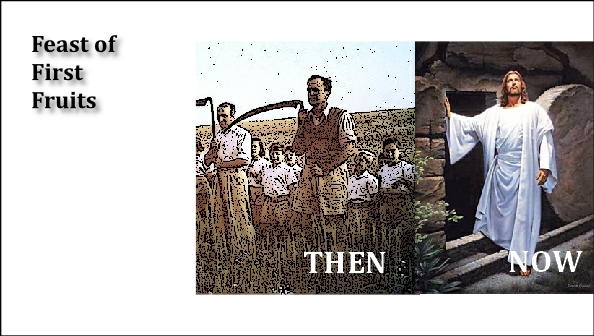By Tyson Thorne

Today starts the Feast of First Fruits. Leave it to God to not have one feast, but to keep piling them up, one on top of another, in abundance. On the Jewish calendar we see that Passover is celebrated on the 14th of Nissan, the Feast of Unleavened Bread starts on the 15th (and continues through to the 21st), and the Feast of First Fruits on the 16th.
Unlike the first two which were established at the time of the exodus from Egypt, the Feast of First Fruits and all other Feasts of the Lord were established later. While the others have nothing to do with the exodus period, they all still point to a prophecy about the Messiah.
The historic occasion for First Fruits is the beginning or the grain harvest and is the day that begins the countdown to the fourth Feast of the Lord, the Feast of Weeks (50 days later; more on this feast in the first week of June). The literal undertaking of this holiday is to harvest the first full measure (an omer) of grain and to offer it, alongside a yearling lamb, a measure of wine and barley flour mixed with olive oil, to the Lord. The people were prohibited from using any part of the harvest until after the offering was made. Since the destruction of the temple in 70 AD no sacrifices or offerings have been made on this day.
The symbolic and prophetic meaning behind the celebration is all about resurrection. The Messiah who became our Passover lamb and was buried would not see his body decay but, instead, be resurrected and become the first of all who would be resurrected from death into life (the first fruits) even as Paul had explained to the Corinthians:
But now Christ has been raised from the dead, the first fruits of those who have fallen asleep… For just as in Adam all die, so also in Christ all will be made alive. But each in his own order: Christ, the first fruits; then when Christ comes, those who belong to him. (1 Corinthians 15.20-.23)
Make no mistake, all of the dead shall be resurrected. Some will be raised and rewarded, others will be raised and condemned (Daniel 12.2). The message of this festival is indeed one that all of humanity should hear and heed.
|
|
|